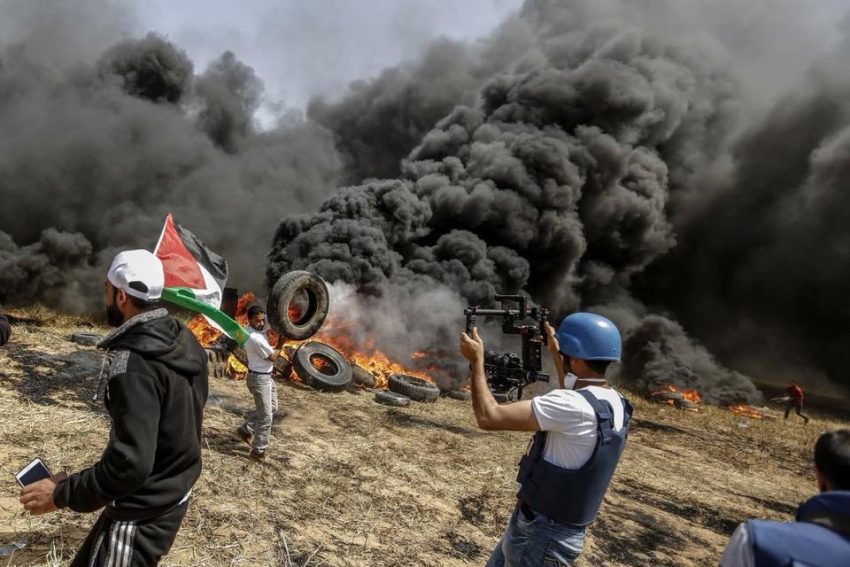Understanding the Israeli-Palestinian conflict is not easy. It requires learning about various narratives, carefully engaging with Israel’s history, and thinking about the hard challenges faced by Jews, Palestinians, Bedouins, Christians, and Druze. Conversations about Israel on college campuses, in the United States, and most importantly in the Middle East need to be nuanced, thoughtful, and done with care.
Unfortunately, the wall that was stationed outside the Stratton Student Center throughout the week of April 22, 2018 did not provide a careful and productive way to engage with the Israeli-Palestinian conflict. It instead presented a one-sided view, selected facts, lacked context and used provocative and offensive imagery. For example, the mural failed to mention that the wall was built as a security measure in response to hundreds of Israelis that were murdered during the Second Intifada in 2000. Since the wall was built, terror attacks have declined by more than 90 percent, and the death toll of Israeli civilians from terror attacks has decreased significantly.
As another example, the mural referred to Gaza as an “Open-Air Prison.” It did not mention that Gaza has a 12-kilometer-long border with Egypt or that Israel sends tons of goods to Gaza. Unfortunately, some of these goods have been used to build at least 15 terror tunnels leading into Israel that have put both civilians in Israel and in Gaza at risk. The mural also did not mention that Israel withdrew from Gaza in 2005 and that Hamas was elected to govern this area by the Palestinians. The leader of Hamas, Ismail Haniyeh, was recently designated by the U.S. State Department as a terrorist. Since January 2012, more than 2,604 rockets and mortars fired from Gaza have hit Israeli civilian areas, and rockets have even been found in a UNRWA school twice (the UNRWA is a United Nations agency established in 1949 to provide assistance and protection to Palestinian refugees).
We wholeheartedly encourage people to express their opinions regarding the Israeli-Palestinian conflict. However, if the intention is to have a meaningful, constructive conversation between Israelis and Palestinians, it is important to present the full picture. Failing to do so is damaging for everyone. It only causes more hurt and divisiveness and unfortunately encourages radicalism on both sides. It is crucial for our actions and conversation about Israel to be fact and context based, educated, and levelheaded. We should acknowledge and address difficulties on both sides and engage in debate to one day build a better future for both Israelis and Palestinians.
Keren Starobinski is a Member of the MIT Class of 2018. Judith Fusman is a Member of the MIT Class of 2021.









